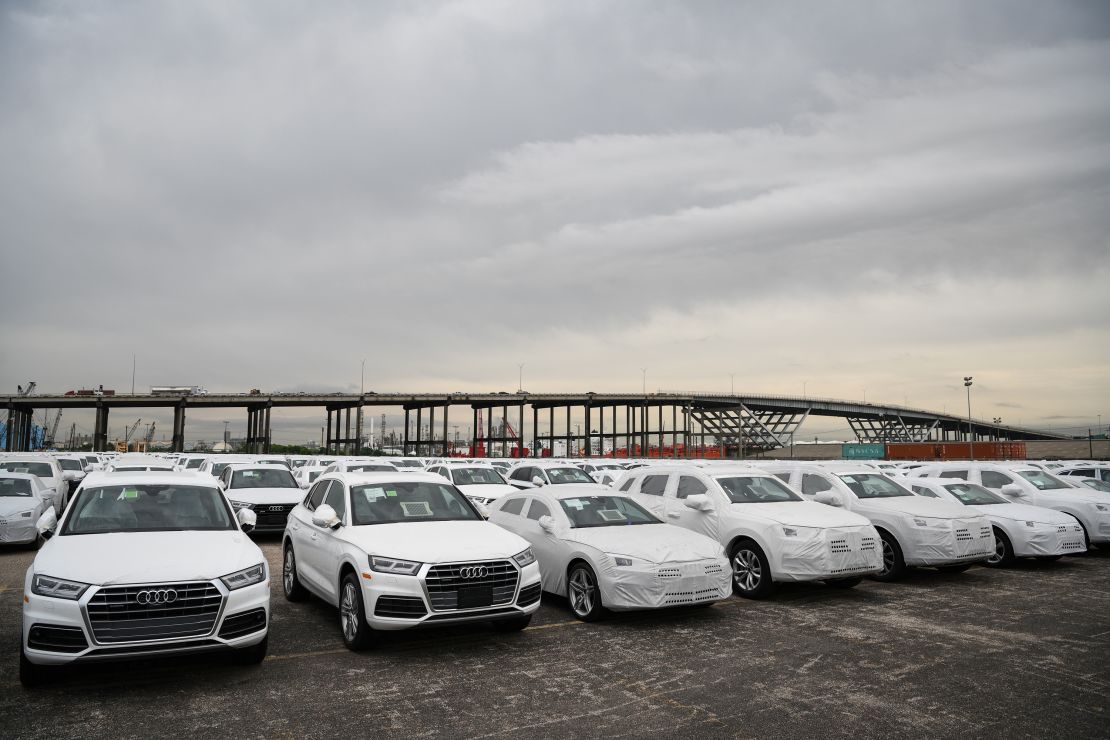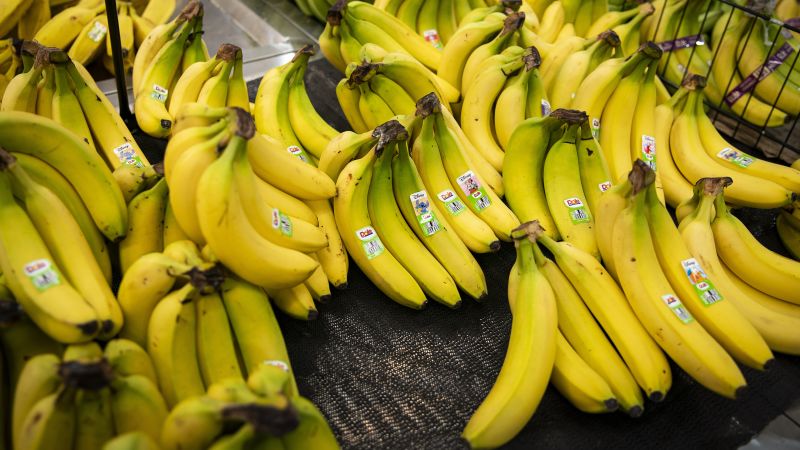If longshore workers at East and Gulf Coast ports go on strike Tuesday, as now appears likely, it could choke off the supplies of many popular products that flow over those docks. But not necessarily right away.
Businesses have been nervously watching the 12:01 am Tuesday strike deadline approaching with little sign of progress toward a deal to avoid a strike of tens of thousands longshore workers. Many have been doing what they can to prepare for the shutdown – but there are limits.
It doesn’t make economic – or logistical – sense to ship many of the goods that come into East Coast ports by alternative ports of entry – or by plane.
That means America could see some shortages of chocolate, alcohol, popular fruit, including bananas and cherries, and even certain cars if the strike lasts a long time. That could mean higher prices for the goods that are available.
First the good news: Your holiday shopping might not be affected as much as you might fear. Typically 70% of goods that retailers stock up for the holidays is already shipped through the ports by this time of year. And because of the strike threat, that percentage is much greater this time.
“Typical the peak shipping season runs from July through early November. They certainly moved up their timing this year, to start in late May or early June,” Jonathan Gold, vice president of supply chain and custom policy for the National Retail Federation, told CNN.
Gold said he can’t say all the goods that retailers plan to offer to holiday shoppers has already arrived, though. “There are limitations you can bring in on any point in time,” he said. And the federation and its members are concerned with how long it will take to recover from even a short strike.
“A one-day shutdown takes three to five days to recover from,” he said. “The longer it goes, the worse it gets.”
He said the last major port labor dispute, an 11-day lockout of the union workers at West Coast ports in 2002, meant that it took six months before things were back to normal.
But most of those holiday goods can sit in warehouses, or even in shipping containers, for months at a time. That’s not the case with perishable goods that flow through the ports, such as fruits and vegetables. And maybe the best example of that is Americans’ most popular fruit, the banana.
Virtually all bananas eaten in the United States are imported, and 1.2 million metric tons of bananas flow through the ILA-represented ports, with Port Wilmington in Delaware declaring itself America’s largest banana port. Banana imports through those ports represent 25% of US banana consumption, according to figures from the American Farm Bureau.
But there are plenty of other imports as well, including 90% of imported cherries, that move through those ports, and a significant portions of berries and other fruits. While there are domestic sources of those products, such as cherries from Michigan and West Coast states, there’s more demand for the product than US growers can provide.
And specialty food items, like imported chocolate and meats from Europe are also at risk of quickly being in short supply, said Danny Munch, economist American Farm Bureau.
Consumers who like “foreign sourced things would be impacted,” he said. “It’ll be more expensive to buy those items at the very least.”
And raw materials used by US food producers such as cocoa and sugar, also come in through the ports at risk of being struck.
The ingredients for chocolate for Halloween has already arrived, Munch said, and it might not affect production for Christmas. But production for early next year could be affected, depending on the length of the strike, so candy for Valentine’s Day could be more difficult to find.
Americans have plenty of domestic sources if they want to have a drink. But many prefer imports from Europe, South America or the Caribbean, products such as German beer, French wine, Scotch and Irish whiskey, or rum and tequila.
There’s enough demand for those products that beverages and spirits are among the major products handled at the Port of New York and New Jersey, the largest port that could be shut by this strike and the third largest in the nation.
“This potential strike comes at the worst time,” Chris Swonger, CEO of the Distilled Spirits Council, told CNN. “We’re leaning into the big selling time of the year for spirits, leading into the holidays. Even a day strike could have significant repercussion.”
While Swonger said his members were also making efforts to move up shipments ahead of the Tuesday strike deadline, he said they haven’t been able to get in everything they need through the end of the year.
“You could see impact at the liquor store within the month, depending upon the inventory,” he said.
In addition, 18% of the beer consumed in the United States is imported, as is 25% to 33% of wine, as well as 90% of rum. And many of those imports come in through East and Gulf coast ports.
The good news is US new-vehicle supply has returned to near-pre-pandemic levels, according to Cox Automotive, increasing significantly from the historic lows seen in 2022, with most of the European brands having inventories above industry average.
“In the near term, consumers and dealers would little feel little impact from an ILA strike,” said Erin Keating, executive analyst at Cox.
But even a healthy inventory is only two to three months worth a vehicles, with hotter vehicles having a shorter supply. A long-term strike could eat into that inventory.
European automakers said they can’t say how much they’ll be impacted at the moment.
“It’s very difficult for us to anticipate the impact,” Volkswagen spokesperson Mark Gillies told CNN. “Ultimately even if the strike is a day or two it’s going to back things up.”

The low inventories of new cars a few years ago, and the record rise in prices that accompanied that tight supply, occurred due to shortages of parts needed to manufacture them. The bad news is the strike could bring some of those production issues back into play, as auto parts coming from Europe and even Asia could be halted. Even if an automaker gets relatively few of the parts it needs through these ports, it can’t finish a car with only 99% of its parts.
“Plants across the Midwest are likely to experience ripple effects depending on their manufacturing strategies – whether they rely on just-in-time delivery or maintain stock,” said Chris Frey, senior manager of business intelligence for Cox. “For the most part, auto manufacturing is reliant on a massive, carefully coordinated supply chain. When that complex chain is gummed up, the ripple effect can be immediate and painful.”
Read the full article here













